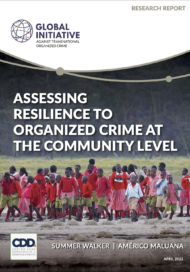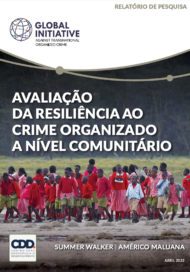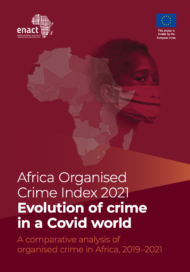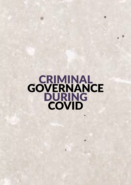Posted on 27 Apr 2022
This report analyzes the findings from a six-month project to create and test a framework for analyzing resilience to organized crime at a community level in conflict and fragile contexts.
This research shows the potentially transformative and sustainable approach that can be developed by joining up the local perspectives with national, bilateral, and international priorities. There are three over-arching takeaways from this research that will reinforce community resilience to organized crime.
Better align local and external needs when determining policy and programming.
Surveying the community on how they view the problem and solutions can help identify where to target programming, and what the strengths and weaknesses for resilience are.
Resilience is embedded in community dynamics.
The problems of organized crime were linked directly to very local community issues, such as mistrust among neigh-bours involved in groups, youth unemployment and lack of opportunity, and local institutional corruption. Some of the efforts seen as most effective by community members were not complex but required sustained effort and care – and with the local community at the helm.
Amplify the role of women.
Women were highlighted as key actors. They are close to the ground, know what’s going on and are willing to engage at the community level. Across the four locations of this study, the role of women varied from economic support groups to local political actions, like advocacy and door-to-door campaigns, to youth empowerment and rehabilitation. Identifying and involving women in security-focused programming nurtures and fortifies resilience at the local level.





